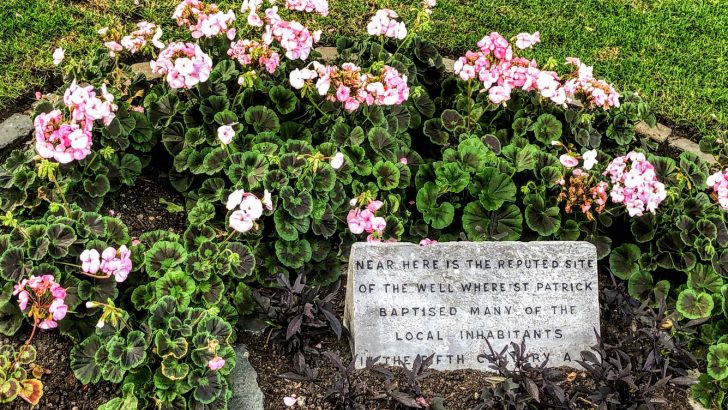St Patrick’s Day and Easter coming so closely together this year, set my mind running back over what we know about the earliest years of Christianity in Ireland, more especially around Dublin.
Despite the assurance with which many people speak about this period, there are many mysteries about the events of the process of ‘national conversion’ and how it came about. That what happened is not crystal clear is a result of Ireland’s centuries of social turmoil, chaos, war and destruction, especially around Leinster and the Dublin region.
First bishop
According to the contemporary Epitoma Chronicon of Prosper of Aquitaine, in 431, “Palladius, having been ordained by Pope Celestine, is sent as first bishop to the Scotti [that is the Irish] believing in Christ”. As Prosper, a layman, was close to Pope Celestine, this carries real weight.
Yet his mission according to some Irish sources was a failure; and in due course some of his doings became confounded with those of St Patrick. Patrick’s mission (if we can judge by remarks in his Confessio), may have been a matter of self-election: he simply sent himself to Ireland, answering a personal call. But that may be a minority view, all part of the controversies over St Patrick.
But what is really interesting is that phrase the “Scotti believing in Christ”. This means Christians had already entered and settled in Ireland, perhaps from continental Europe through Ardmore, Waterford and Wexford; or from Wales (parts of which were Irish kingdoms then) through Eblana (as Dublin was originally called).
That there was a long-standing but undocumented trade through Eblana is suggested by the pattern of the roads across Ireland that focuses not Tara or Armagh but on Dublin Bay, and those from Anglesey and Chester leading in to the main road south ending in London.
However Hillarie Belloc, in his insightful, but now little read, book The Road (1923), points out that these date back to ‘barbaric times’, by which he means certainly pre-Roman. People regularly moved between the islands.
But the later, much-cultivated legends of St Patrick — such as the saint’s dramatic encounter with the high king at Easter time at Slane — have almost obliterated Palladius and more importantly those pre-Palladian Christians.
Limited
Where our information is limited we have to be open-minded in thinking about what might have happened; and to compare Ireland’s experiences with those of the early Christians who travelled the length Asia along trade routes far beyond the borders of the Roman Empire.
The destruction at the time of the Reformation of St Mary’s Abbey on the north bank of the River Liffey, which housed the largest library in Ireland, must have resulted in the destruction of goodness knows what records, annals, histories and sagas relating to ancient Dublin and Leinster: this is one of the greatest losses ever to Irish civilisation.
Yet while our lack of legendary, traditional and even historical details about the coming of Christianity to the Dublin region is a sad loss, it does not in the end affect the outcome of history.
We may not know exactly how it happened, whether through the mission of Palladius, the inevitable seepage beyond the Imperial frontier of a new belief, or the efforts of St Patrick, but Dublin became, long before the Vikings, and still remains, if not a Christian city, at least a city for Christians. That is something all Dubliners can still see for themselves, at least for the time being.
Those first Christians in Leinster and Eblana were travellers and traders rather like those in South Africa two centuries ago: with no bishop, perhaps no pastors: alone among pagan native tribes. These lone individual witnesses to the Faith they held in their souls are worth thinking about long before ever we think about any other apostles of Ireland.
Are these pioneers, rather than St Patrick, the true models for modern Irish Christians?


 Peter Costello
Peter Costello A modern marker on the reputed site of St Patrick’s Well in Dublin.
A modern marker on the reputed site of St Patrick’s Well in Dublin. 